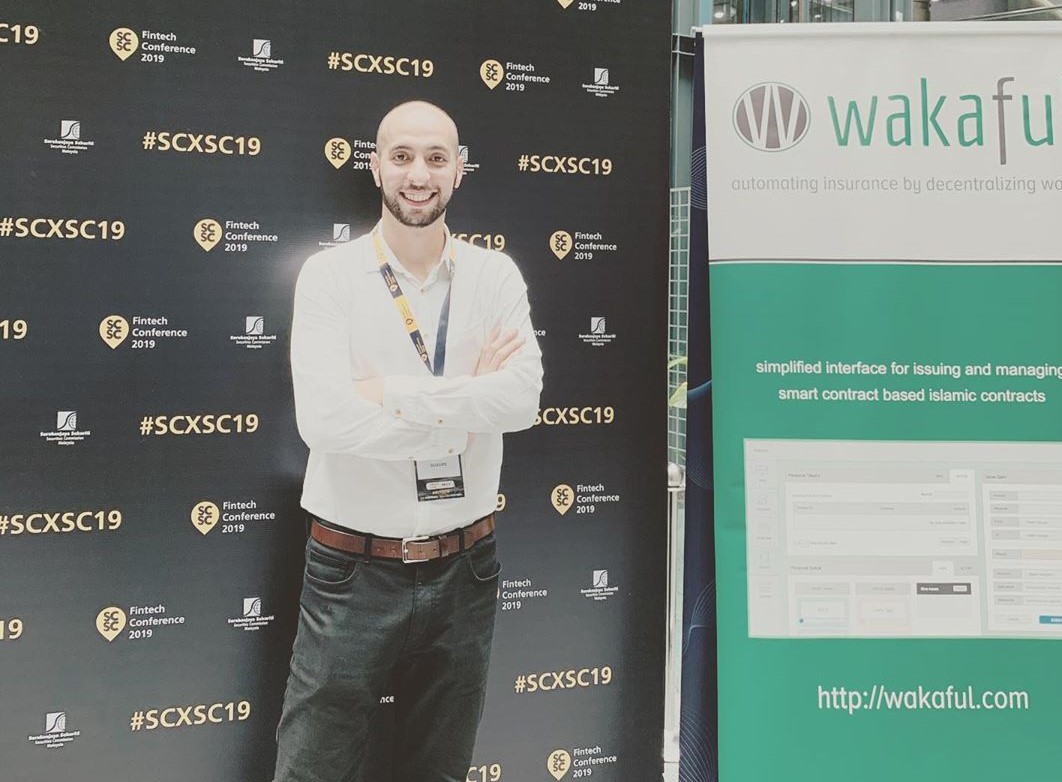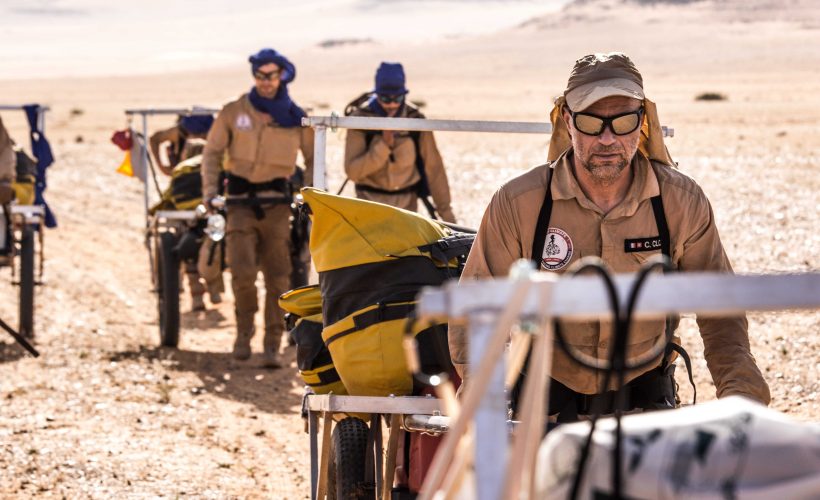Tech & Business
3.23.2020
Wakaful, when fintech reinvents Islamic finance

When the principles of Islamic finance come together with blockbuster technology, the result is Wakaful: a start-up that helps Malaysians lacking access to insurance or standard financial services.
After a PhD in Islamic finance from the Islamic University of Kuala Lumpur, Hammam Radwan worked for a crowdfunding platform, then for The Blockchain Embassy of Asia. A path that quickly puts him on the road to fintech and inclusion. Today with Wakaful, he is reinventing Islamic finance through blockchain technology. The start-up has participated in an ‘accelerator’ organized by the United Nations Capital Development Fund along with the Central Bank of Malaysia, placing among the top 6 finalists of #myfintechweek in Zambia.
How did you come up with the idea of combining Islamic finance and fintech technology?
In Islamic finance, the Waqf is a donation usually dedicated to a charity that can be made by anyone. Today in Malaysia, the administration of the waqf is very centralized, which means that if a donor decides to give thousands of dollars to a specific cause, he cannot apply it to the financial market without the state doing so on its behalf. This raises the dilemma on transparency — a problem that has hindered the waqf since Ottoman Empire. However, prior to that, during its initial stages, during the era of the prophet, it was far more decentralized and everyone was free to administer their money as they pleased. Initially with Wakaful we wanted to disrupt the waqf industry by increasing transparency through our blockchain platform. But in doing so, we soon realized that we weren’t able to be granted permission from the state, which led us to create a normal trust fund instead.
Quels types de services Wakaful fournit aujourd’hui ?
In Malaysia, the central bank report on insurance inclusion mentioned that about 7.8 millions of the Malaysian working class is completely uninsured. And half of them stand at the very at the bottom of the economic pyramid, earning less than 3000 ringgits (700 usd) a month. We tried to ask ourselves how to create a more inclusive model that would provide them access to insurance. We realized that financial literacy is the biggest problem for the uptake of insurance in Malaysia. Even if the Central bank is pushing insurance to create cheaper products, the lack of education and mistrust poor people have towards those big corporations prevent them from doing so. They cannot fully comprehend how insurance works not understand the value it holds. So we decided to organize some charity funds, providing premium insurance for the aforementioned, for a period of time. We asked companies how they conducted their CSR, and they told us that there was a lot of charity funds (with donations going up to hundreds billions of dollars) but that there was no way of tracing where the money was being sent. We came up with our own platform to solve this problem, providing transparency on those funds, informing them where their money is being spent, what their impact is and how many lives are being saved. We also fill a gap within the Malaysian law regarding the refugees issue. Since they usually don’t have a form of ID, they used to be excluded from insurance, however the sponsorship program allows for them to receive it. One hand, we provide more transparency to the charity funds, and on the other we make insurance products more inclusive.
How is the market of fintech performing within Islamic finance today?
There are two distinctions to be made. One is that Islamic industry represents over 3 trillion dollars, which is quite small in comparison to the western banking system, but quite mature as an asset value. However, there is still a large part of the population in the muslim world that still cannot access standard banking services. This is where the new islamic fintech industry comes in. The market is very young and still in its baby stages. There are so many innovations that have yet to come, from applying islamic finance principles to fintech applications.
What are your new projects for the next future?
We have also launched a second product called Credent capital. Malaysia recently issued a licence for cryptocurrency exchanges, meaning that this is now a fully regulated business. All those platforms must use a third party while fundraising for companies. So we are utilizing our technology to find that Xero service, in order for the currency exchanges to begin operating. We are not licenced yet, but we are fundraising to do so and launch. We already have insurances partners in Malaysia, the such as the Zakat Institution, along with NGOs such as the Rohingya project and Skolafund.
popular

